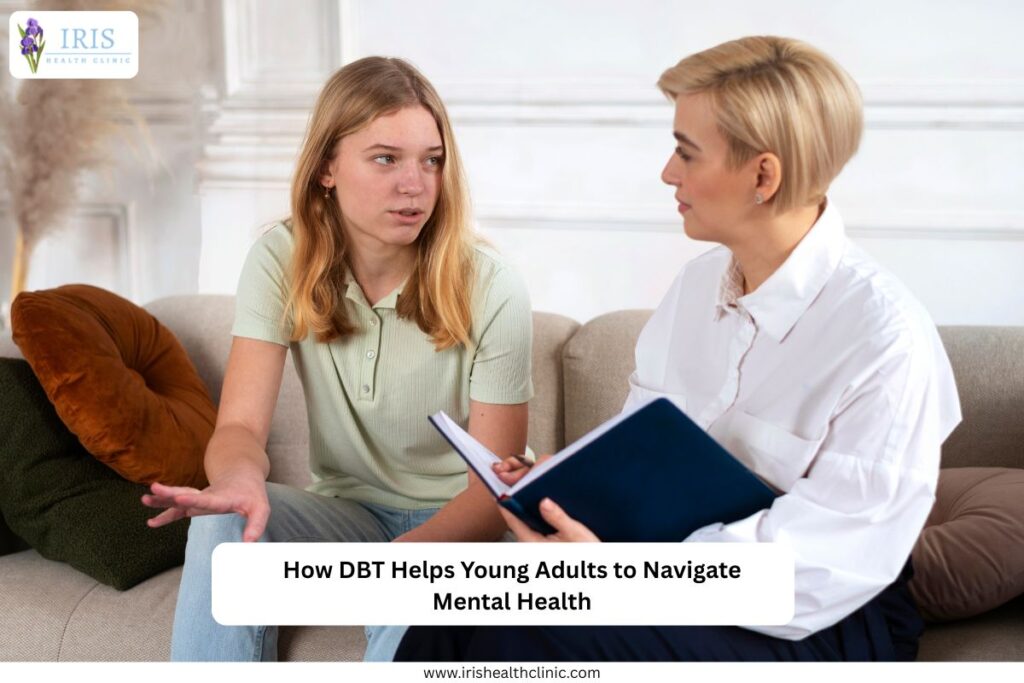Being a young adult today is tough. You’re trying to figure out who you are. Maybe balancing studies, a job, relationships, social media, and a future that feels like it’s coming way too fast. And underneath all of it? Anxiety. Mood swings. Burnout. Emotional overload. Sometimes, it just gets too much.
According to the WHO, nearly one in seven people aged 10 to 19 encounters a mental health disorder. That’s a lot. And sadly, many of them don’t get the help they need.
This is where dialectical behavior therapy steps in. It’s a practical, skills-based therapy that helps thousands of young adults gain control over their emotions and behaviors.
What is Dialectical Behavior Therapy?
Dialectical behavior therapy (DBT) is a type of cognitive-behavioral therapy. It was created to help people with borderline personality disorder. But now? It’s used to treat all sorts of things—depression, anxiety, self-harm, and emotional dysregulation.
What makes it different? It’s all about balance. The word “dialectical” basically means finding a middle ground between two opposites, such as acceptance and change. In simple terms, DBT teaches you to accept yourself as you are. While also helping you grow and get better at the same time.
Common Struggles Young Adults Face
You don’t have to be in full-blown crisis mode for DBT to be helpful. Here’s what it’s great at tackling:
- Anxiety that won’t quit
- Mood swings that mess with your relationships
- Impulsive decisions (hello, 2 a.m. texts to your ex)
- Difficulty handling stress
- Negative self-talk that spirals into hopelessness
- Feeling numb, disconnected, or emotionally overwhelmed
Sound familiar? Yeah, you’re not alone.
How Does DBT Actually Work?
It’s not just lying on a couch and spilling your guts. DBT therapy is structured. It involves learning practical skills in four key areas:
- Mindfulness: Being present. Not zoning out. Not future-tripping. Just here.
- Distress Tolerance: Handling pain or stress without freaking out or doing something you’ll regret.
- Emotional Regulation: Understanding and managing your emotions instead of letting them control you.
- Interpersonal Effectiveness: Navigating relationships and setting boundaries without guilt or blowups.
Each skill is like a tool in your mental health toolbox. And the more you practice, the stronger you get.

“I Can’t Afford Therapy” — A Totally Valid Concern
Look, therapy isn’t always cheap. And not everyone has insurance that covers it. But there’s good news.
There are affordable DBT therapy options out there. More and more clinics and providers are offering sliding-scale pricing or virtual group programs that cost less than traditional therapy.
Also, online access has changed the game. You can sign up for an online DBT program that offers the same support, minus the awkward waiting room vibes.
So, no. You don’t have to break the bank to get help.
DBT Therapy for Anxiety: Why It Works
Let’s talk about anxiety for a second.
Anxiety isn’t just “worrying too much.” It’s panic at 3 a.m, sweating through your shirt before a presentation & thinking everyone hates you after you send a message with a typo.
DBT therapy for anxiety works because it doesn’t just try to stop the anxiety. It helps you understand it, cope with it, and respond in ways that don’t make it worse.
Breathing exercises. Grounding techniques. Thought-challenging. Self-soothing. These are the weapons DBT puts in your hands. And it doesn’t expect perfection. DBT says, “You’re human. Just do your best.”
Is It Really Worth It?
Totally. And we’re not just saying that.
Young adults who go through a dialectical behavior therapy program often report fewer emotional breakdowns, more confidence in social situations, and better coping skills overall.
But here’s the deal. DBT takes work. You can’t just show up once and expect magic.
The good news? You don’t have to do it alone.
What If I Don’t Want to Go In-Person?
No problem. The world is digital now.
If you’re Googling “best DBT therapy near me” and only finding clinics five cities away, don’t stress. With a good online DBT program, you can log in from your laptop, join a group, talk to a therapist, and learn all the same skills.
It’s therapy in your pajamas. We call that a win.
Quick Signs You Might Want to Try DBT
Not sure if it’s for you? Here’s a rapid-fire checklist:
- You feel things too much and don’t know how to handle them
- You’ve been told you’re “too sensitive” or “too intense.”
- You shut down or lash out under pressure
- You keep repeating toxic patterns in relationships
- Your inner critic sounds like a jerk on a loudspeaker
- You want help, but regular talk therapy didn’t really help
If you nodded at any of those, DBT might just be your new favorite thing.
Conclusion
You don’t have to be “broken” to benefit from therapy. You just have to be human. And if DBT sounds like it could help you or someone you care about, don’t wait until things get worse.
Whether you’re looking for affordable DBT therapy, a structured dialectical behavior therapy program, or an easy-to-access online DBT program, the support is out there.
At Iris Health Clinic, we specialize in helping young adults feel more in control, more grounded, and more like themselves again. Our DBT services are tailored, practical, and, yes, approachable. Whether you’re seeking DBT therapy for anxiety or just want to stop feeling emotionally overwhelmed, we’ve got your back.
Find your balance. Start where you are. We’ll meet you there.

